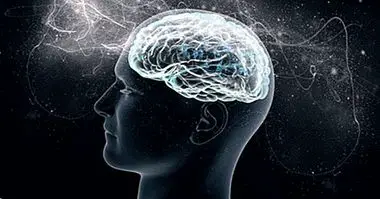Addiction to travel and dromomania: do they really exist?
It is possible to find on many internet portals some signs to know if you suffer addiction to travel. Some of these portals even refer to this concept as pathological and as an uncontrollable need to flee from the place where the person lives.
Some of these websites, including they use the term travel addiction with the name of "dromomania" . However, scientific studies seem to indicate that travel is intimately related to happiness, because it helps us to have pleasant memories and to live new and exciting experiences.
So, does the addiction to travel really exist? Is travel addiction the same as dromomania? In this article we will answer these questions.
- Maybe you're interested: "The 31 best Psychology books you can not miss"
Dromomania: what is it?
Some people confuse the addiction to travel with dromomania, but nothing has to do with these two concepts. Being addicted to travel, like any addiction, would have more to do with the excessive stimulation of the area of the reinforcement and, therefore, the release of dopamine in large quantities in the brain. Today, there is no evidence that travel addiction is a disorder, and as I said, traveling favors the well-being of people.
Now, when we talk about dromomania, that some websites they cite this phenomena as traveler flight or dissociative flight . So yes we are referring to a serious disorder, which is encompassed within the dissociative disorders in the DSM (Diagnostic and Statistical Manual of Mental Disorders).
Dissociative disorders are pathological characterized by disruptions or failures in memory, consciousness, identity and / or perception.
That is to say, These disorders affect the thoughts, feelings and actions of a person , that can suddenly feel an unbearable sadness, without an apparent reason, that lasts a certain period of time until it disappears. Or, on the other hand, an individual may find himself doing something he would not normally do but is unable to stop, as if someone were forcing him to do so and as if the person were simply a passenger in his own body, unable to master the steering wheel in the direction you want.
In view of what is stated in the DSM-V, the dissociative flight would refer to the realization of trips, in which the patient leaves his home and does not remember the events of his life . It can come to abandon its own identity and assume a new reality.
- Related article: "Dissociative leak: symptoms, types, causes and treatment"
What is the addiction to travel
As you see, the dromomania is very different from what many people consider as an addiction to travel. We all know those people who, as soon as they have the possibility of doing so, go far from where they live. They get on the plane and train and get to know the world . Whether skiing in the mountains, enjoying the sun in Punta Cana or treading Thailand on your trip to Asia.
But ... is this really bad this? It may be that these people wish travel unknown places, listen to other languages and get to know new cultures . Logically, it is not negative to have this mentality.
In fact, there is no evidence that the addiction to travel exists and there is nothing wrong in wanting to travel the world and know the most beautiful and impressive corners of our planet: the Eiffel Tower, the Chinese Wall, the Taj Mahal or Niagara Falls ...
- You may be interested: "Why is the return trip shorter than the return trip?"
When is traveling a problem?
Traveling is no problem, the problem arises when the person traveling is not comfortable with himself and uses travel as a way to avoid the reality that surrounds him. When a person does not enjoy their work, nor their daily life, nor enjoy pleasurable activities in the place where they reside, they may experience stress or depression and embark on trips that allow them to escape from their reality.
Being on vacation can be the oxygen that the person needs for what he considers his sad or bitter life. Traveling in these cases is an attempt to reduce the discomfort and anxiety that the person may suffer.
In this sense, the psychoanalyst Magdalena Salamanca, comments to Elle magazine, "the problem arises when the individual does not connect with himself, and feels dissatisfied with his life. He thinks that in this way he will feel better. "That is to say, these people can look for a refuge in their trips, in which the expectations of the going can keep them motivated despite their bitter daily life, but the return can lead to depression postvacacional, because it takes him back to the place he detests.
The psychologist and director of this magazine also explains to Elle, "Virtually any hobby or activity can become an addiction. However, in the DSM there is no mental illness or travel addiction typified as such. " He also adds: "It is likely that someone wants escape from your daily routine or leave behind a traumatic experience , which can lead you to abandon situations or places that evoke painful memories. Now, in no case is traveling the problem in itself, but an avoidance behavior that aims to reduce pain. "
In these cases, it is necessary to seek professional help to improve those areas of the individual's life in which they are not comfortable or cause discomfort.
The benefits of traveling
Traveling, therefore, is not the problem and, in fact, there are many investigations that conclude that it is key to our mental health. One of them was published in the Journal of Positive Psychology.
- If you want to go deeper into this study and know more about the benefits of traveling, you can read the article "The 11 psychological benefits of traveling"



















